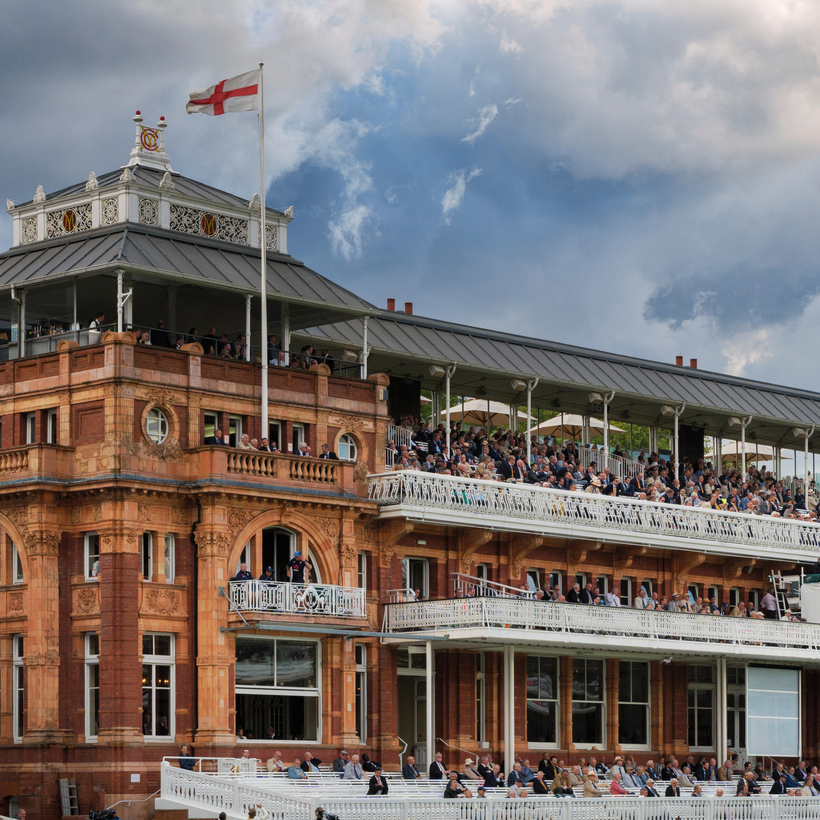England has two national sports: cricket and queuing. And to the uninitiated onlooker, there’s little to separate one from the other. Both swing from great periods of languor and boredom to sudden flurries of excitement and action; both can last for groaningly long periods with no clear victor at the end; both are governed by a set of bewildering rules and tacit understandings; and both are buttressed by a ferocious sense of fair play.
And both, it should be said, are cozily housed in the grand institution of the Marylebone Cricket Club. Based over at Lord’s—the North London ground known internationally as the Home of Cricket—the M.C.C. is the literal owner of the laws of the sport and the foremost preserver of its values. The turreted Lord’s Pavilion (in which only M.C.C. members can sit on match days) is not so much a grandstand as a cathedral crossed with a museum crossed with a locker room.


